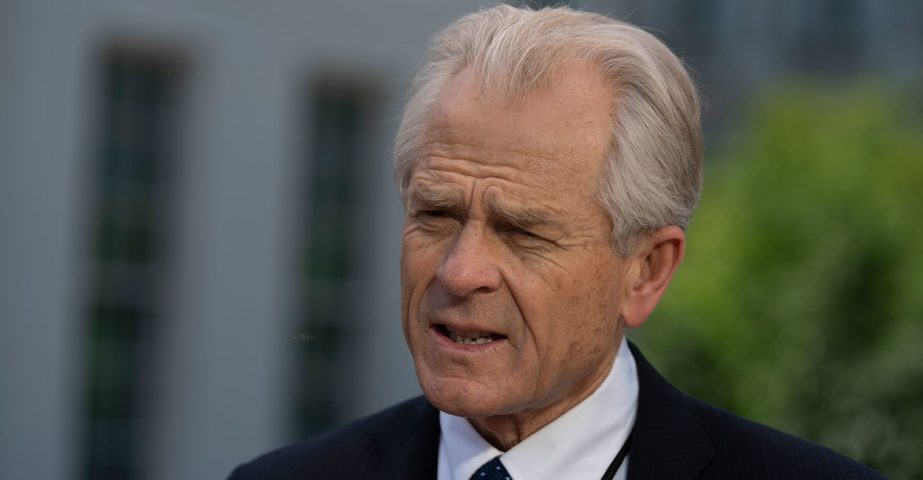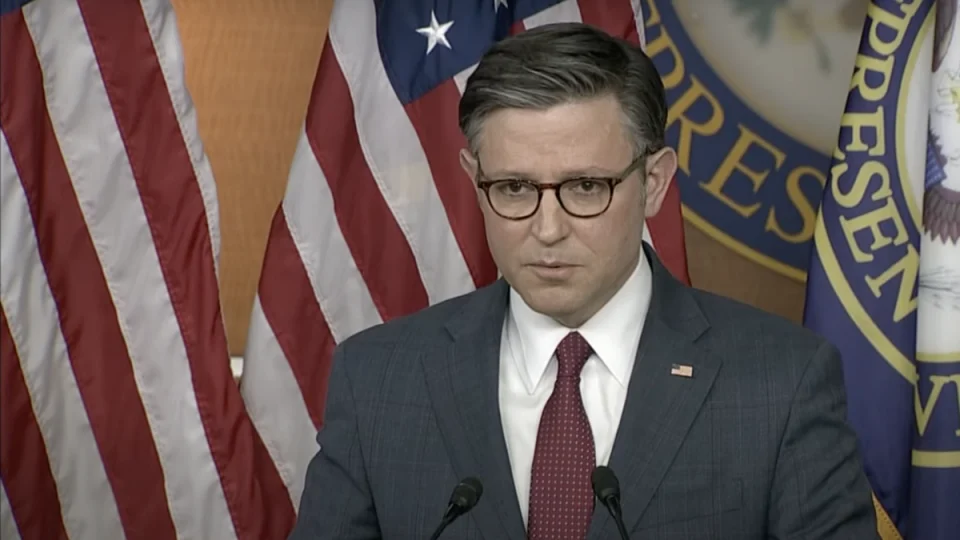Politics: The Dangers in Believing Economic Security Is National Security, by Riley Walters

Fatima Visionaries’ Terrifying Vision of Hell, by Philip Kosloski
November 8, 2018
The Divide That Runs Through America Is Religious, by Jerry D. Salyer
November 8, 2018
Peter Navarro, an adviser to President Trump on trade, speaks at the White House in Washington, D.C., on June 1. (Photo: Chris Kleponis - CNP/Newscom)
By Riley Walters, The Daily Signal,
The director of the Office of Trade and Manufacturing Policy at the White House, Peter Navarro, on Friday will give a speech at the Center for Strategic and International Studies in Washington on economic security as a matter of national security.
Navarro will attempt to pinpoint where economic activity, national security, and executive authorities overlap.
He will attempt to argue the necessity for economic security, even though there is no consensus of what economic security looks like, domestically or internationally.
Those who make the economic security argument are often stuck defending a dangerous set of assumptions—not limited to an oversimplification of the situation and overestimation of how the government can help.
Ultimately, policy geared toward economic security ends up creating more harm than good as it slowly erodes the freedom and economic opportunities of Americans.
The economic security argument usually begins like this: A domestic industry, or resource, is limited. Worse than that, domestic production is decreasing, usually because of higher prices, and the U.S. is having to rely more on imports. Some of those imports are coming from countries we think have bad intentions. Also, previous protectionism was too little, too late.
Often times, these arguments don’t distinguish between unfair trading practices and illicit activities, such as the theft of intellectual property. One is more of a trade issue, while the other is more of a rule-of-law issue.
The most excessive proponents of economic security won’t distinguish between these acts and those that are components of war, such as trade blockades and illegal seizures.
Their arguments are also based on an assumption that our allies, who we would rely on during times of war, wouldn’t also supply the U.S. with other resources.
Those countries—Japan, South Korea, Taiwan, our NATO allies—depend on us to defend them. Why would they ever want to undermine our ability to do so?
Navarro likely will base a significant portion of his argument on one statistic—the decrease in U.S. manufacturing jobs—as a gauge for both economic and national security.
Protectionists argue the U.S. needs a certain number of manufacturing jobs. Otherwise, they say, if the U.S. isn’t making things, then there won’t be enough jobs in the sectors of the economy they think are the most important.
Fifty years ago, manufacturing made up more than 25 percent of total non-farm employment with 18 million jobs. Today, there are fewer than 13 million employed in manufacturing.
The fact that manufacturing makes up less than 8 percent of non-farm employment is worrisome for protectionists.
However, the current prosperity of the overall U.S. economy gives us little to actually worry about right now. More than 80 million non-farm jobs have been added to the U.S. economy since 1968, and U.S. unemployment is currently at a 49-year low.
Assuming that someone like Navarro thinks manufacturing jobs should be 25 percent of total non-farm employment, as in the past, he’d have to either unrealistically create 33 million new jobs or unreasonably ask 25 million Americans to leave their current jobs for jobs in manufacturing.
There are only about 6 million Americans unemployed, and even then, typically only 1 million jobs are added each year to the U.S. economy.
Ultimately, Navarro wants the same as everyone else; namely, a prosperous American economy. He simply thinks having more jobs in manufacturing is the way to get there.
But manufacturing employment alone is not indicative of a strong economy. In fact, U.S. manufacturing output—a good indicator of economic strength—has consistently increased over the past 20 years and is nearly at an all-time high.
A strong economy—built on increased economic activity—allows for the creation of a strong military, but Americans don’t engage in economic activity for the sake of military expansion. Put another way, you generally don’t buy a car so the sales tax can go toward building a new tank.
Even economic growth can run up against national security interests. Economic growth leads to a decrease in the number of new military enlistments as more profitable job opportunities arise elsewhere. Yet, one important component of national security is having enough men and women enlist.
Believing there’s a strategy out there that can manage the intricacies of the U.S. economy is dangerous.
An economy is the accumulation of choices individuals make based on their limited resources. Economic security should mean protecting and expanding those choices, even if a few individuals don’t agree with the current makeup of the U.S. economy.
It should not be about limiting individuals’ opportunities to support a specific industry. Regretfully, though, that’s usually what economic security policy leads to.
Right now, the Trump administration has placed taxes on imports from both our allies and strategic competitors alike. Those tariffs negatively affect the choices and opportunities of all Americans, and those costs will drag on the future growth of America’s economy and national security.
Navarro’s speech is likely to be more sensationalist about the supposed economic threats Americans face from countries such as China and less substantive about how the administration’s trade policy has positively affected Americans.
Nonetheless, the belief that economic security is national security is a major driver of a U.S. trade policy and is a danger to U.S. economic growth and prosperity.
________________________
Riley Walters is a policy analyst in the Davis Institute for National Security and Foreign Policy at The Heritage Foundation.





